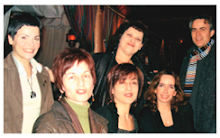By Laura Harrison,
The idea of teaching English as a foreign language appeals to a huge range of people. Many people choose to teach English as a foreign language and bring with them specialist knowledge and experience that makes them particularly interesting, even inspiring, educators.
After long careers, newly-retired people, ready to try something new and eager to spend time in foreign countries go for it. While some hope to use their qualification to live and work in a variety of countries, others train to teach English as part of a plan to move to a particular country indefinitely. They may be joining partners who have found work, or simply feel they could enjoy a better standard of living there. TEFL is a good way to spend a gap year - before university, after graduating, or as a short career break.
Prospective trainees often worry that they might not fit the TEFL "mould", but there isn't really such a thing. And the ratio of men and women training in TEFL is more or less equal. Many TEFL people are adventurous, confident, approachable and creative. But in terms of where they have come from - and where they are going to - the variations really are quite amazing.
To read the full article, click here:
http://education.guardian.co.uk/tefl/story/0,,2291349,00.html


No comments:
Post a Comment